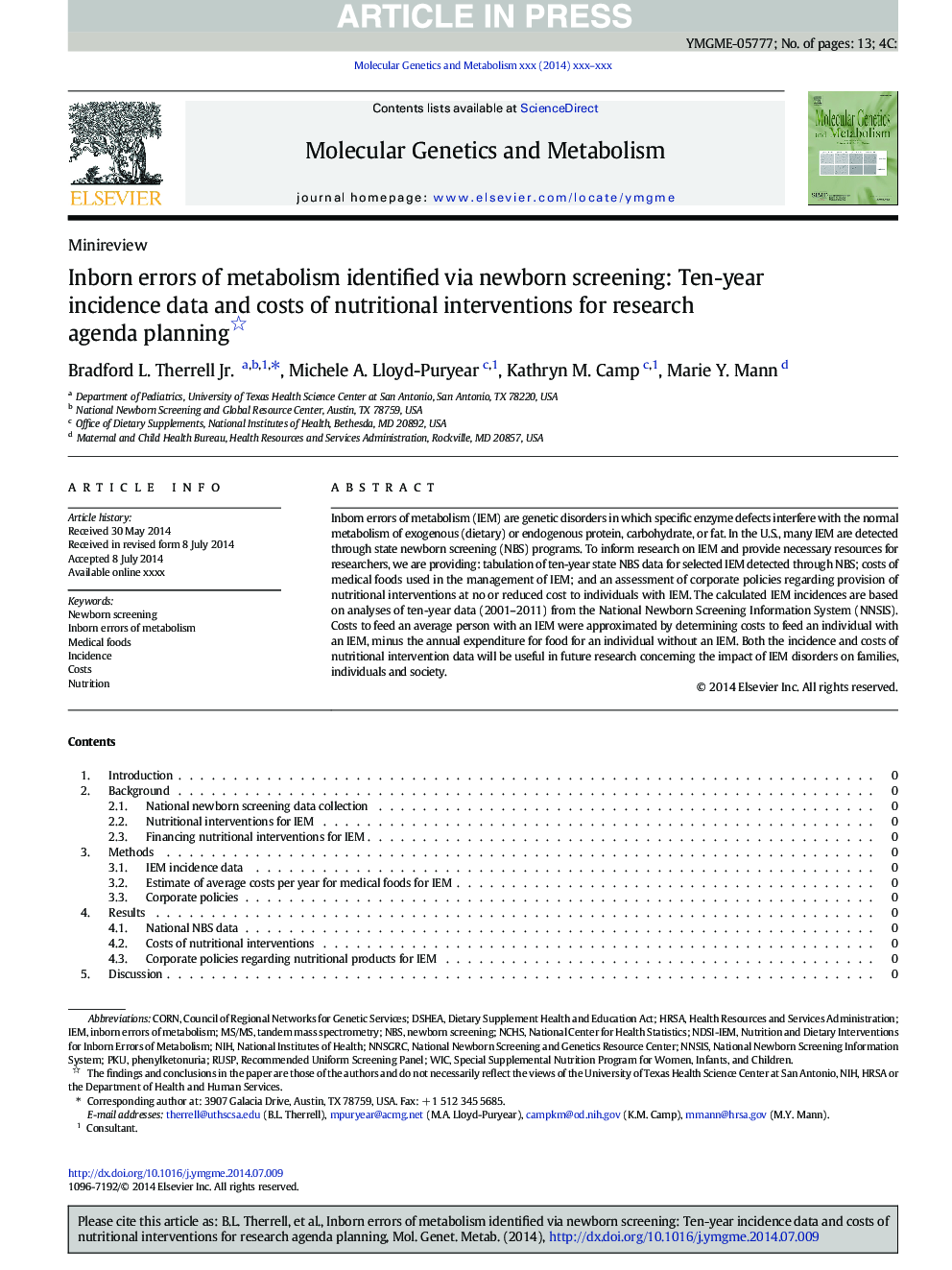| Article ID | Journal | Published Year | Pages | File Type |
|---|---|---|---|---|
| 8343819 | Molecular Genetics and Metabolism | 2014 | 13 Pages |
Abstract
Inborn errors of metabolism (IEM) are genetic disorders in which specific enzyme defects interfere with the normal metabolism of exogenous (dietary) or endogenous protein, carbohydrate, or fat. In the U.S., many IEM are detected through state newborn screening (NBS) programs. To inform research on IEM and provide necessary resources for researchers, we are providing: tabulation of ten-year state NBS data for selected IEM detected through NBS; costs of medical foods used in the management of IEM; and an assessment of corporate policies regarding provision of nutritional interventions at no or reduced cost to individuals with IEM. The calculated IEM incidences are based on analyses of ten-year data (2001-2011) from the National Newborn Screening Information System (NNSIS). Costs to feed an average person with an IEM were approximated by determining costs to feed an individual with an IEM, minus the annual expenditure for food for an individual without an IEM. Both the incidence and costs of nutritional intervention data will be useful in future research concerning the impact of IEM disorders on families, individuals and society.
Keywords
DSHEARUSPWICNCHSRecommended Uniform Screening PanelNIHNBSDietary Supplement Health and Education ActHRSAPKUphenylketonuriaMS/MSHealth Resources and Services AdministrationIEMSpecial Supplemental Nutrition Program for Women, Infants, and ChildrenIncidenceNutritionInborn errors of metabolismCornTandem mass spectrometryMedical foodsNewborn screeningNational Institutes of HealthNational Center for Health StatisticsCosts
Related Topics
Life Sciences
Biochemistry, Genetics and Molecular Biology
Biochemistry
Authors
Bradford L. Jr., Michele A. Lloyd-Puryear, Kathryn M. Camp, Marie Y. Mann,
